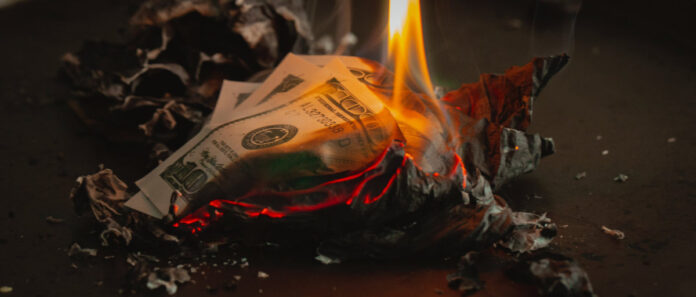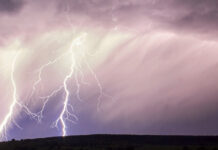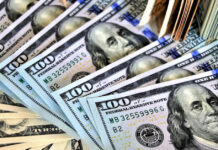We all know about the relationship between supply and demand, but do you know what demand destruction is, its relationship to inflation, and why it could be bad for the country?
When there is too much money chasing too few products, you have inflation. Inflation is traditionally caused by expanding the money supply, which is what happened during the pandemic when the government sent out stimulus checks to individuals and made loans and grants to companies, spending more money than ever before and driving up the deficit. That “extra” money they created came not from work or sales, so it flooded the system and created inflation.
At the same time, fewer good were produced, which caused shortages, the “too few products” element in the inflation definition above. This combination of extra money and not enough goods to go around drove up prices, giving us an acute case of inflation.
Demand destruction is when people change their behavior due to high prices and stop buying a good or service. That reduces the demand for that good.
Gasoline Prices
For example, one of the reason gasoline prices jumped $1 a gallon since the Ukraine invasion is fear that there will not be enough oil and gas to go around. This perceived shortage caused a bidding war as companies snapped up oil, driving up the price.
As gasoline prices topped $4 per gallon in most of the country and $6 or more in some areas, people change their behavior and drive less. That is an example of demand destruction.
Let’s say that on a “normal” weekend, you would run to the grocery store on Saturday. That night, you would all go out to a sit-down restaurant. On Sunday, you head out to the garden center to pick up some plants. That’s three separate trips. Since it cost $80 the last time you filled your gas tank, up from less than $50, you have started to combine trips. Now you go to the garden center on your way to the grocery store, and instead of eating out, you order pizza and have it delivered.
You have gone from three trips to one, probably burning less than half as much gasoline. That means you will fill need to fill your gas tank less often. When enough people do this, gasoline demand drops, which is an example of demand destruction.
Ordering $35 worth of pizza instead of spending $60 on dinner is an example of how inflation hurts our economy and can send it into a depression. That restaurant just lost your business, and the business of other people in a similar situation. It then orders less food from its suppliers and gives fewer hours to its employees. That hurts their incomes, meaning they have less to spend, and the cycle repeats. Pretty soon you have a downhill slide into a recession.
Food Inflation
While we can all come up with ways to drive less, it is much more difficult to eat less. Instead, people buy cheaper food. For example, instead of steak, you might eat pork. Instead of hamburgers, you might serve hotdogs. You might make casseroles and other dishes that use less expensive ingredients like pasta and rice instead of a meat dish. As the price of eggs rise, maybe you have pancakes or oatmeal more often.
Besides changing what foods they eat, people also change the brands and quality. When they look at the shelf and see a $13 bottle of pure maple syrup, a $6 bottle of maple-flavored corn syrup, people who are worried about their increasing food bill will probably opt for the imitation stuff. Likewise, they might buy the basic brand of pasta for $1 instead of the expensive imported kind for $2.89. Instead of buying raspberries for $9, they buy the strawberries for $5.
Right now, the box of facial tissue sitting on my desk is the Walmart brand. Do I like the Kleenex brand more? Yes, I think it has a better texture. Do I buy the Kleenex brand? Not when the Walmart brand is cheaper. Does this impact Kleenex’s bottom line? Not today, but if the 61 percent of the country that is living paycheck to paycheck makes the same decision, that will hurt Kleenex and all the other branded products that are more expensive than the store brands and discount products.
A Fragile System
Over the past two years, we’ve seen the fragility of our supply chain. The complex system has so many moving parts that a couple of small failures can disrupt production and delivery, causing a chain reaction that makes the supply chain disruption even worse.
The bad news is that our society has many other complex systems and inflation and demand destruction will impact many of them. By causing consumer behavior to change, business models based on projections of expected sales will fall apart. Companies that rely on cash flow will find that they are not making enough money to pay their bills. They will go to the bank and find that the interest rate has doubled or their line of credit was canceled. They will have to lay off people, close some operations and struggle to survive. When this happens repeatedly, it causes a recession.
When the recession hits, companies will fail and people will lose their jobs. Unemployment will rise and tax revenues will fall. People will make other changes to save money. For example, the person who gets the newest iPhone within days of its release will decide their current phone is just fine. Those people who fly to Cancun every year on vacation will drive to the shore instead. The recession will grow worse.
In the last two recessions, the government quickened the pace of recovery by pumping money into the economy. While that caused an economic rebound, it also contributed to the inflation we see today. That means the Federal Reserve cannot (or at least, should not) use quantitative easing and stimulus this time. Our economic system is so out of whack from excessive government and central bank intervention that the coming recession will be worse and last longer than usual. In fact, the recession may lead to one of three things: stagflation, a depression, or hyperinflation.
Three Ugly Choices
Stagflation is the combination of high unemployment and high inflation, and it can result in years of economic doldrums. If prices stay high as people lose their job, we’ll be in stagflation.
A depression is even worse because there is less economic activity. During a recession, the markets experience a correction, but they bounce back in a few quarters. In a recession, they don’t just dip, they crash, and stay down for years. In a recession, people go hungry and tighten their belts while in a depression, safety nets fail and people starve to death.
Both a recession and a depression are anti-inflationary, because there is far less money available. As people lose jobs, businesses fail, and markets plummet, people go broke. They lose their income and eventually their jobs.
Hyperinflation is what will happen if the government intervenes and pumps more money into the economy, hoping to counteract a recession. Trying to spend our way out of inflation would be a foolish choice, but our politicians in Washington make many foolish choices. That’s how we got to this precipice: by kicking the can down the road too many times.
Frankly, a good recession is probably the only cure for our inflation. In the early 1980s, Fed Chairman Paul Volcker kicked interest rates so high, he sent the country into a recession, but he also stopped the cycle of stagflation. Current Fed Chairman Jerome Powell wants to fight inflation without causing a recession, something many think is impossible. His less stringent actions may extend or even exacerbate the problem rather than cure it.
Either a depression or hyperinflation could lead to economic collapse. Of the two, I think hyperinflation is more dangerous because it will make everyone broke. A depression will spare many.
What this Means for Preppers
Regardless of what happens in Ukraine, the South Pacific, or with the Iran nuke deal, this country is facing an ugly economic future through and beyond 2022. The good news is that many of the preps you made for a SHTF catastrophe will benefit you in a depression or hyperinflation, but there are some things you can still do. Here are two articles that go into more detail:
- What is Hyperinflation and How to Survive it. This lengthy article addresses what to expect during hyperinflation and moves you can make then and now to help you successfully navigate through it.
- How to Survive Hyperinflation: Venezuela Cuts Six Zeros From its Currency. Many of the suggestions in this post are useful for mitigating inflation as well as hyperinflation.
We warned you about inflation before it hit. Don’t ignore this warning. Prepare.








